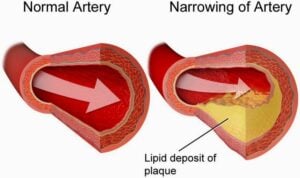The Study at a Glance
Researchers analyzed data from several large U.S. studies following thousands of adults over time. Participants who reported a higher sense of purpose — feeling that their lives had meaning, direction, and goals — were about 28% less likely to develop cognitive impairment or dementia.
The findings held even after adjusting for factors like age, education, physical health, and lifestyle. Those who felt life had meaning stayed mentally sharper and more resilient as they aged.
Why This Matters for You and Your Loved Ones
Amazon: Prevent Alzheimer’s / Dementia
- Organic Turmeric Powder
- Omega 3 Supplements
- Diet & Alzheimer’s
- Prevention Guides
- Turmeric Curcumin Supplement
FREE! Weekly Diet Tips:
These results highlight a hopeful, human truth: what keeps the brain strong may be as emotional as it is biological.
- Purpose fuels resilience. People who feel useful and goal-driven tend to stay mentally engaged.
- It complements medical care. Purpose works hand-in-hand with other protective habits like exercise, diet, and social connection.
- It’s never too late. Even small steps — volunteering, mentoring, learning something new — can reignite a sense of meaning.
For caregivers, this also reinforces how emotional well-being matters. Supporting your loved one’s sense of purpose can be just as powerful as tracking their medication or diet.
What We Know — and What’s Still Unknown
The study is among the strongest yet to link psychological purpose with lower dementia risk. Still, researchers note several open questions:
- Can we teach or strengthen purpose in measurable ways?
- Does higher purpose actually protect the brain, or do early brain changes reduce one’s sense of purpose?
- How do cultural, spiritual, or personal differences affect these outcomes?
More research is underway to understand how purpose interacts with brain biology and disease progression.
What You Can Do Starting Today
Finding purpose doesn’t have to mean changing your life — it can start small.
- Reconnect with values or activities that give you joy.
- Set meaningful goals, even simple daily ones.
- Volunteer or mentor — being needed strengthens purpose.
- Encourage loved ones to share stories, passions, and goals.
- Keep both mind and heart engaged through relationships and gratitude.
These steps nurture emotional vitality — and now, possibly cognitive health, too.
A New Kind of Prevention
Science is increasingly confirming what wisdom has long taught: a life lived with meaning protects the mind.
While there’s no cure yet for Alzheimer’s, strengthening purpose gives people a way to build resilience — one intention, one day, one act of meaning at a time.










